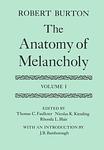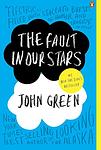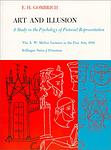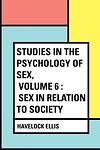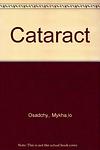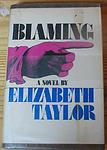The Greatest "Medicine" Books of All Time
Click to learn how this list is calculated.
This list represents a comprehensive and trusted collection of the greatest books. Developed through a specialized algorithm, it brings together 300 'best of' book lists to form a definitive guide to the world's most acclaimed books. For those interested in how these books are chosen, additional details can be found on the rankings page.
Genres
The "Medicine" category of books encompasses a wide range of topics related to healthcare, including medical research, clinical practice, pharmacology, and public health. These books may cover topics such as disease prevention, diagnosis, treatment, and management, as well as the social, ethical, and political issues surrounding healthcare. The category includes both academic and popular works, and is intended for healthcare professionals, students, and anyone interested in learning more about medicine and healthcare.
Countries
Date Range
Reading Statistics
Click the button below to see how many of these books you've read!
Download
If you're interested in downloading this list as a CSV file for use in a spreadsheet application, you can easily do so by clicking the button below. Please note that to ensure a manageable file size and faster download, the CSV will include details for only the first 500 books.
Download-
26. The Anatomy of Melancholy by Robert Burton
"The Anatomy of Melancholy" is a comprehensive and detailed exploration of melancholy, a term used to describe a variety of mental states, including depression, anxiety, and sadness. The author examines the causes, symptoms, and treatments of melancholy from a variety of perspectives, incorporating elements of psychology, philosophy, history, and literature. The book is notable for its extensive use of classical sources, its humorous and satirical style, and its profound insights into human nature and the human condition.
-
27. Arrowsmith by Sinclair Lewis
The novel follows the life of a bright and dedicated young man, Martin Arrowsmith, who dreams of making significant contributions to medical science. He faces a constant struggle between his ambition and the demands of his professional and personal life. His journey takes him from a small Midwestern town to the prestigious universities of the East Coast, and eventually to a deadly outbreak in the Caribbean. Throughout his journey, he grapples with the corruption, greed, and mediocrity that he finds pervading the medical field, all while trying to remain true to his scientific ideals.
-
28. Coming of Age in Samoa by Margaret Mead
"Coming of Age in Samoa" is a groundbreaking anthropological study that explores adolescence, sexuality, and social norms in Samoan society. The author lived among the Samoans in the 1920s, observing and recording their way of life, particularly focusing on the experiences of teenage girls. The book challenges Western views on sexual morality and the nature versus nurture debate, suggesting that culture plays a significant role in adolescent development and behavior. The author's observations indicate that Samoan teenagers face less stress and confusion than their American counterparts, largely due to their society's relaxed attitudes towards sex and clear societal roles.
-
29. The Art of Memory by Frances A. Yates
"The Art of Memory" is a historical exploration of the ancient art of memory, and its influence on Western culture. The book delves into the memory training techniques used by ancient Greeks and Romans, and traces their evolution and application through the Middle Ages and Renaissance. The author also explores how these techniques influenced the development of philosophy, science, education, and religion throughout history.
-
30. The Hero with a Thousand Faces by Joseph Campbell
This book explores the theory that important myths from around the world which have survived for thousands of years all share a fundamental structure, which the author calls the "monomyth." It outlines the stages of this monomyth, which include a hero's call to adventure, a descent into the underworld, and a triumphant return. The book also discusses how these universal patterns can provide a framework for understanding human experience and the world around us.
-
31. The Immortal Life of Henrietta Lacks by Rebecca Skloot
The book tells the story of Henrietta Lacks, a poor African American tobacco farmer whose cells, taken without her knowledge in 1951, became one of the most important tools in medicine, vital for developing the polio vaccine, cloning, gene mapping, and more. Henrietta's cells have been bought and sold by the billions, yet she remains virtually unknown, and her family can't afford health insurance. The book explores the collision between ethics, race, and medicine; of scientific discovery and faith healing; and of a daughter consumed with questions about the mother she never knew.
-
32. The Fault in Our Stars by John Green
This novel follows the poignant journey of two teenagers, both cancer patients, who meet in a support group and fall in love. Their shared experiences and unique outlook on life and death bring them closer together, and they embark on a trip to Amsterdam to meet a reclusive author they both admire. Through their journey, they explore the harsh realities of living with a terminal illness while also experiencing the beautiful and tragic aspects of first love.
-
33. Waiting by Ha Jin
"Waiting" is a story set in China during the Cultural Revolution and its aftermath, revolving around the life of Lin Kong, a military doctor who is torn between his love for two women. He is stuck in an arranged marriage with his traditional wife in the countryside, while he falls in love with a modern, city nurse. The novel explores his 18-year struggle to divorce his wife and marry his lover, depicting the clash between traditional and modern Chinese culture, personal desires, and societal expectations.
-
34. The Physician by Noah Gordon
The book tells the story of a young English boy, Rob Cole, in the 11th century who becomes an apprentice to a barber-surgeon. Rob's ambition to become a physician takes him across Europe and into the heart of the Muslim world, a journey fraught with danger and discovery. He disguises himself as a Jew to study at a school that does not admit Christians. The narrative is a captivating mix of history, science, and adventure, highlighting the protagonist's perseverance and the state of medical knowledge during the Middle Ages.
-
35. The Uses of Enchantment by Bruno Bettelheim
"The Uses of Enchantment" is a psychological analysis of fairy tales and their importance in childhood development. The book argues that these stories allow children to navigate their emotions and understand aspects of life they are yet to experience. By exploring various themes, such as separation anxiety, oedipal conflict, and sibling rivalry, through well-known fairy tales, the author demonstrates how these narratives contribute to a child's moral education and understanding of the human nature.
-
36. On Aggression by Konrad Lorenz
"On Aggression" is a scientific study that explores the concept of aggression in both animals and humans from an ethological (study of animal behavior) perspective. The author argues that aggression is an innate and necessary instinct that has helped species survive and evolve. However, he also emphasizes that this instinct, when unchecked or misdirected, can lead to destructive behavior and violence. The book provides a comprehensive analysis of the biological roots of aggression, its role in the evolution and survival of species, and its implications for human society.
-
37. The Emperor of All Maladies: A Biography of Cancer by Siddhartha Mukherjee
This book is a comprehensive history of cancer, its treatments, and the ongoing search for a cure. It presents an in-depth exploration of the disease from its first documented appearances thousands of years ago through the epic battles in the twentieth century to cure, control, and conquer it, to a radical new understanding of its essence. The book also discusses the politics of cancer research, the impact of patient activism, and the complex and often fraught relationships between researchers, oncologists, and patients.
-
38. Art and Illusion by Ernest H. Gombrich
"Art and Illusion" is a comprehensive study of the psychology of pictorial representation. The book explores how artists from the Renaissance to the present day have used illusions to enhance their work, and how our brains interpret these illusions. It delves into the science behind our perception of reality and how it influences art, providing a unique perspective on the intersection between psychology, philosophy, and aesthetics. The book also discusses the concept of 'schema' and 'correction' in an artist's work, and how the artist's perception of the world is constantly evolving.
-
39. King Solomon's Ring by Konrad Lorenz
This book is a fascinating exploration of animal behavior by a renowned zoologist. It delves into the author's personal experiences and observations of animals in their natural habitats, focusing particularly on birds, dogs, and jackdaws. The author uses these observations to draw conclusions about animal psychology and behavior, often comparing it to human behavior. The book is named after the biblical King Solomon, who was said to have a ring that allowed him to understand the language of animals.
-
40. Hippocratic Corpus by Hippocrates
The "Hippocratic Corpus" is a collection of around 70 early medical works from ancient Greece, written in Ionic Greek. The texts are of varying content and length, covering a wide range of medical topics, including clinical descriptions of disease, surgical procedures, medical ethics, and philosophical reflections. Although traditionally attributed to Hippocrates, modern scholars believe that many of the works were not written by him and instead represent the work of several different authors over several decades. Despite this, the collection remains an invaluable resource for understanding the beginnings of Western medicine.
-
41. Studies in the Psychology of Sex by Havelock Ellis
This book explores the psychology of sex, delving into a wide range of subjects including sexual inversion, erotic symbolism, sexual impulse in women, and the sexual impulse in men. It also covers the analysis of the sexual instinct, its development in childhood and adolescence, and its manifestations in adulthood. The author uses a scientific approach, drawing on extensive research and case studies to provide a comprehensive understanding of the topic. It's considered a pioneering work in the field of sexology.
-
42. Memoirs of My Nervous Illness by Daniel Paul Schreber
The book is a personal account of a prominent German judge's struggle with severe mental illness. It provides a detailed and vivid description of his experiences with psychosis, hallucinations, and delusions, which he attributes to divine intervention and cosmic forces. The author's attempt to understand and make sense of his condition forms the core of this memoir, and his insights have been influential in the fields of psychology and psychiatry. His narrative is a unique exploration of the mind and its relationship with reality, providing an intimate perspective on mental illness.
-
43. Down There by J. K. Huysmans
"Down There" is a novel that follows the life of a Parisian novelist who is disillusioned with his mundane life and seeks solace in the occult. His journey leads him to a satanic priest who introduces him to the dark world of satanism. The protagonist becomes deeply involved in this world, experiencing hallucinations and disturbing visions. The book is a deeply psychological exploration of the human fascination with evil and the macabre, set against the backdrop of late 19th-century Parisian society.
-
44. Saturday by Ian McEwan
"Saturday" is a novel that unfolds over a single day in London, following the life of a successful neurosurgeon. His day is disrupted by a violent encounter with a petty criminal, which leads to a series of tense situations that force him to confront his values, his family's safety, and his view of the world. The narrative explores themes of love, fear, and the randomness of life, all set against the backdrop of a post-9/11 world.
-
45. Shadows on the Rock by Willa Cather
Set in the late 17th century, the novel explores the lives of French colonists in Quebec City. It focuses on the daily experiences of a French apothecary and his young daughter, illuminating their struggles and joys as they navigate the harsh realities of frontier life. The narrative delves into themes of faith, identity, and the human spirit's resilience, offering an intimate portrait of early colonial life in North America.
-
46. Thinking, Fast and Slow by Daniel Kahneman
The book delves into the two systems that drive the way we think—System 1, which is fast and intuitive, and System 2, which is slow and deliberate. The author, a Nobel laureate, explores how these systems shape our judgments and decision-making. He presents several groundbreaking experiments that have shaped our understanding of human thought, revealing where we can trust our intuitions and how we can tap into the benefits of slow thinking. The book also discusses how our cognitive biases often lead to errors in judgment and affect our decision-making processes.
-
47. Three Case Histories by Sigmund Freud
"Three Case Histories" is a compilation of three of the most famous case studies by a renowned psychoanalyst, exploring the complexities of the human mind. The book includes the cases of 'Little Hans', a boy with a phobia of horses, 'The Rat Man', an obsessive-compulsive patient, and 'The Wolf Man', a wealthy Russian aristocrat suffering from a variety of psychoneurotic symptoms. The author uses these cases to demonstrate his theories on psychoanalysis, childhood sexuality, the interpretation of dreams, and the subconscious.
-
48. Insight: A Study of Human Understanding by Bernard Lonergan
The book is a comprehensive exploration of human understanding and cognition from a philosophical perspective. It delves into the nature of knowledge, the process of knowing, and the dynamics of inquiry and learning. The author presents a detailed analysis of the human intellect and its operations, investigating the role of insight in decision-making, problem-solving, and discovery. The book also discusses the relationship between understanding and other cognitive faculties such as perception, memory, and imagination, while examining the impact of cultural, social, and historical factors on human understanding.
-
49. Cataract by Mykhaylo Osadchy
"Cataract" is a collection of short stories that explore the complexities of human nature and the human condition. The stories are set in various locations around the world and feature a diverse range of characters, each facing their own unique struggles and challenges. The author uses vivid and evocative language to bring these characters and their experiences to life, creating a deeply immersive and thought-provoking reading experience. The stories also delve into philosophical and existential themes, prompting readers to reflect on their own lives and the world around them.
-
50. Blaming by Elizabeth Taylor
"Blaming" is a poignant story about a woman named Amy who, after the sudden death of her husband during a holiday, finds herself befriended by an American woman named Martha. Despite their differences, Martha provides Amy with comfort and support, but Amy finds it difficult to accept this kindness due to her reserved and private nature. The novel explores themes of grief, friendship, and the complexities of human relationships, as well as the guilt and blame individuals often place on themselves in times of hardship.
Reading Statistics
Click the button below to see how many of these books you've read!
Download
If you're interested in downloading this list as a CSV file for use in a spreadsheet application, you can easily do so by clicking the button below. Please note that to ensure a manageable file size and faster download, the CSV will include details for only the first 500 books.
Download